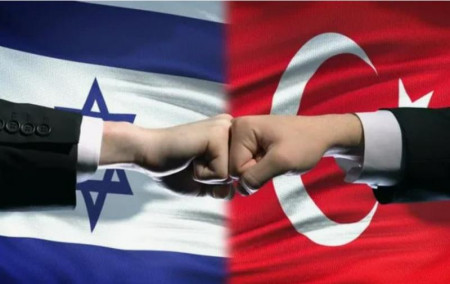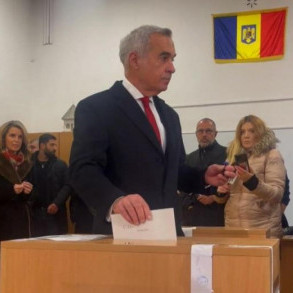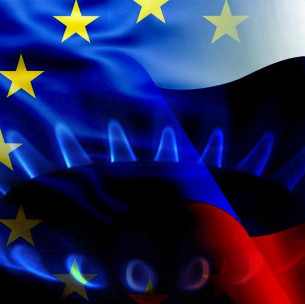
A new conflict has been unfolding the Middle East. Turkey wants to build an "Ottoman Empire 2.0," while Israel intends to create a "Greater Israel." Both have cast their eyes on the territory of former Syria, but two dogs over one bone seldom agree, as a well-known formula says. So, it turned out that by removing the Assad regime hateful to both Erdogan and Netanyahu, the two strategists brought their states to the brink of war with each other. Compulsion to carry out their grand projects now runs into the problem of territories Turkey and Israel claim at once. Moreover, the former is willing to subjugate Syria spiritually, putting its supporters at the helm – and this does work so far, but Israel needs to finally take over the Golan Heights and the space between them and Damascus, populating the land with Jews, which is absolutely unacceptable for the Turks. So, a new stage of redistributing the Middle East has begun.
Interestingly, behind Israel's back is the Jewish lobby in Washington, and behind Turkey's is US-led NATO. The situation is at least unusual, if not to say that it may become a pretext for the alliance’s collapse. Who is more valuable to Washington, the Ottomans or the Jews? And after assessing this, a careful departure from the Syrian conflict by both Russia and Iran looks utterly different.
By way of evidence, let us refer to several think pieces of recent days. Authors from Britain, Turkey, Israel, and the United States describe what is going on from their perspectives, which helps piece together a more comprehensive picture. Let's start with the Britons: "Turkey and Israel are trying to take advantage of the fall of the Assad regime in Syria," The Financial Times writes. "At a regional level, however, Erdogan has a good claim to be one of two strongman leaders that are reshaping the Middle East. His hated rival, Benjamin Netanyahu of Israel, is the other. Erdogan has long aspired to rebuild Turkish power across the territories of the old Ottoman Empire. For him, toppling Assad opens a new path to regional influence." And further on: "Netanyahu, like Erdogan, sees opportunities ahead. Speaking last week, he remarked: ‘Something tectonic has happened here, an earthquake that hasn’t happened in the hundred years since the Sykes-Picot agreement.’ That reference to the 1916 British-French agreement that divided up the Ottoman Empire sounds significant. With the Middle East in turmoil, advocates of a Greater Israel see a chance to redraw the region’s borders again. Aluf Benn of Haaretz writes that Netanyahu ‘seems to be angling for a legacy as the leader who expanded Israel’s borders after 50 years of retreat’." The Financial Times writes bluntly that "the rival ambitions of Erdogan and Netanyahu could easily clash in Syria."
So, the cunning Britons have brough together the Ottoman Empire and Greater Israel in one comment, providing a clear confirmation of our assessment as regards the ongoing reformatting processes in the Middle East. And now let's turn to the press of the two rivals who came together in a clinch — Turkey and Israel.
The world community was strangely and strongly impressed when the autumn UN General Assembly session of September 22, 2023 saw Netanyahu show a map of Israel dating back to… 1948, with no Palestine on it at all. That year, the UN decided to create two independent states in the territory of former British-Controlled Mandatory Palestine — Israel and Palestine proper. And then in 2023, the Israeli Prime Minister made no bones about his vision: "All of Palestine is Israel."
This is what The Jerusalem Post wrote on this occasion: "Prime Minister Netanyahu is under fire on social media for holding up a map at the United Nations General Assembly plenum on Friday that placed the West Bank and Gaza within the boundaries of sovereign Israel… Americans for Peace Now CEO Hadar Susskind posted on X that ‘His map of Greater Israel is perhaps the only honest part of his speech today.’"
HAMAS militants attacked Israel two weeks later, on October 7, 2023, after Netanyahu announced at the United Nations that both the Palestinian-inhabited Gaza Strip and the West Bank were part of Israel — and no Palestine at all! Maybe he was already waiting for that attack to ramp up things to his favor? It's like a match at chess, when you sacrifice a piece to gain positional advantage. In September 2023, many at the United Nations were surprised by such pep, but now desires by Netanyahu and his supporters have started being implemented not only in the devastated Gaza Strip, which is being cleared of the Palestinian population, but also on an increasingly larger scale as the Druze-inhabited part of Syria may well find itself within the Israeli borders. An expansion of Israel has gotten underway, with no one restricting it from the outside. What lengths are they prepared to go? In any case, the British write that "the incoming Trump administration may give Israel the green light to formally annex parts of the occupied West Bank. And the ‘temporary’ occupation of Syrian land may prove to be permanent."
So, everything is clear with the aim of creating a Greater Israel while the world has other things to worry about, and Netanyahu has the opportunity to get what he wants — that is, someone else’s lands — without much resistance as the United States, Europe, Russia, and China are clearly not in the mood to engage in the Middle Eastern affairs for the time being. Therefore, let's move on to the Turkish aspirations for resurrecting the Ottoman Empire. The major obstacle here is that the Arab peoples loathe this with all their hearts. However, as in relations with Israel, their mere verbal resistance is not a game-changer, and the Turks get a "window of opportunity." The local press does write about it as well, for example, Yeni Safak that played its aces right away:
"From now on, we must change and define our view of the countries and the region as per our own political and geographical worldview, not with expansionist theses of the United States, Europe or Israel. We need to adopt the same ‘definitions of integrity" for countries and the entire region we live in — a vast region stretching from East Africa to the Pacific Ocean.… The joint economic basin of Turkey, Syria and Lebanon may become a pattern for the entire region, it is quite possible. The "Turkish miracle" will make itself felt in Syria, Somalia, Lebanon, and other countries. A hundred years later, the leap of history has begun again. New wonders await us." Isn't it a direct hint at the return of the Ottoman project "a hundred years later" in new historical realities?!
The British write about what is going on in a rather cynical way: "Like Erdogan, Netanyahu is a ruthless political survivor. Each first took power decades ago and regards himself as a man of destiny. However, their dreams of regional dominance suffer from similar weaknesses. Israel and Turkey are non-Arab powers in a majority-Arab region. There is no appetite in the Arab world for a recreated Ottoman Empire. Israel remains an outsider power in the Middle East, feared, distrusted and often hated."
The Americans are also adding fuel to the growing Middle Eastern fire, explicitly inciting an Israeli strike on Turkey in the near future! They have just published a direct US call to Israel to destroy Turkey’s nuclear power plants. "Should Israel attack Turkey’s nuclear plant?": "Turkey’s Akkuyu nuclear plant may begin trial operation in 2025. The move toward operations comes just over 15 years since Turkey signed an agreement with Russia to cooperate on the construction of a nuclear power station. Such a nuclear plant should never be allowed to function… Turkey might utilize its nuclear plant to acquire fissile material for a nuclear weapon." Former Pentagon official Michael Rubin writes in this article that Tel Aviv has enough capacity to destroy the Akkuyu NPP. "The straight-line distance between Tel Aviv and the Akkuyu plant is just over 325 miles. Israel has F-35 Joint Strike Fighters and it need not overfly intermediary countries to strike inside Turkey."
And of all this broke out right after the Assad government’s fall — a whole "bouquet" of numerous contradictions and enmity has blossomed. Who wanted the fall of Assad? Israel, Europe and the United States with Turkey? So, you've made your bed, now lie in it — a new war is knocking at your door!
The shock caused by the collision of two new regional forces — the fall of Syria has dramatically transformed the Middle Eastern landscape — will naturally have an impact on others, primarily Iran. What would be its answer? Creation of a Persian nuclear bomb! The Financial Times points this out directly: "Iran might respond to the loss of its regional proxies with an accelerated drive to obtain nuclear weapons."
The most interesting thing is that Middle Eastern affairs are now less important to the great powers than they were in the twentieth century — they have other priorities. And if local processes are left slide while the projects of Turkey and Israel collide, the question of who will support these countries from the outside becomes vital for the parties engaged. To Russia, the role of an outside observer may be the most beneficial as sooner or later both the Israelis and Turks will apply to it for arbitration. And, of course, it's time for Iran to sign a full-scale agreement with Moscow.









